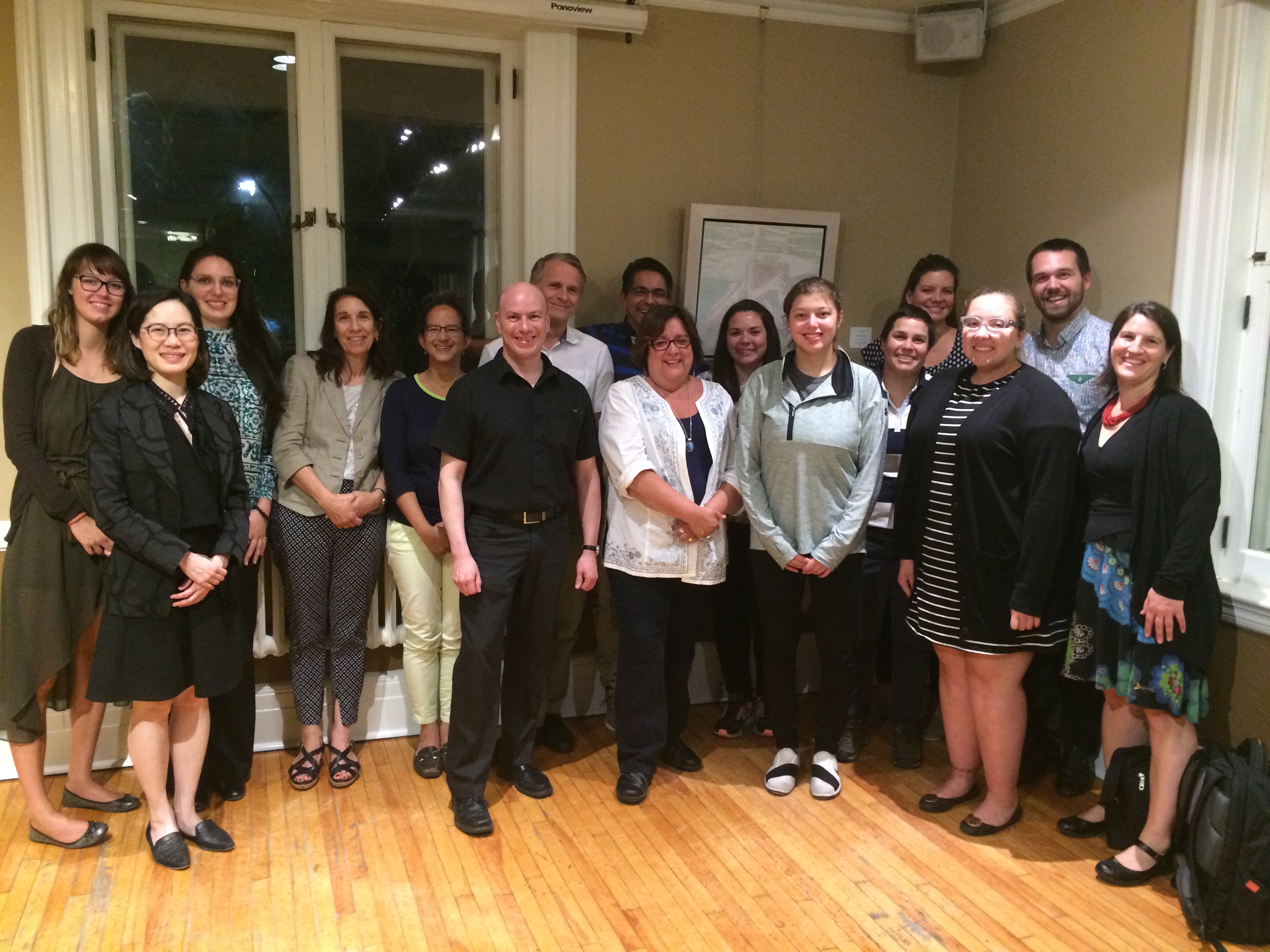
On the evening of Monday, September 11, the McGill University Faculty of Medicine’s recently created Indigenous Health Professions Program (IHPP) held an inaugural welcome dinner at Thompson House to kick-off the new academic year for Indigenous students studying in health care-related disciplines at the University.
“Very often Indigenous students feel alone when they come to a university setting,” explains Dr. Kent Saylor, Director of the Indigenous Health Professions Program at McGill. “The student welcoming event is a great way to introduce them to our program, introduce them to each other and to show them that they are important to us. It is easy to get lost in a large institution such as McGill. We want to show the students they are important and we will do everything we can to help them succeed throughout their time at McGill.”
The students themselves were happy for the opportunity afforded by the dinner to learn more about the new IHPP. “I was pleased that staff and faculty members discussed their implication in the new IHPP program,” says Ève Mailhot-Daye, a third-year medical student from Kanesatake/Oka. “It is an exciting time to have such a program be implemented at McGill because it shows the importance of Indigenous people in the academic centre.”
Beyond learning more about the new program, the event also provided an opportunity to network. “It was an excellent opportunity to get to know the Indigenous students and faculty from the different health professional schools at McGill,” notes Jennifer Robinson, a first-year Anishinaabe medical student from the Timiskaming First Nation in Quebec. “This type of event aligns perfectly with the Indigenous view that a sense of belonging and purpose is so crucial to our well-being. Culture is a foundational element in our worldview and our welcoming event was also an opportunity to learn from Mohawk Elder Charlie Patton. As a First Nations student I am aware of the challenges that Indigenous students may face, however I strongly believe in the support students can provide to each other, in addition to the support available to us coming from both Indigenous and non-Indigenous faculty.”
“These events are important for networking, but they’re also important for establishing lifelong connections,” adds Erin Patton, a second year BScN student at McGill’s Ingram School of Nursing from Kahnawake. “By meeting my new colleagues, I feel more motivated by them. It’s also important to meet other fellow Indigenous students so you can relate to certain issues and challenges and overcome them together.”
On choosing McGill
“I chose McGill because this was an opportunity to return home and study at an exceptional university that I thought would best prepare me for my medical career,” relays Abbey Frazer, a first-year Mohawk medical student originally from Hudson who spent the past four years completing her undergraduate degree at Harvard.
The Physicianship component of the MDCM curriculum was a big draw for Jennifer. ”This component provides mentorship and guidance that will enable me to further my knowledge in science and demonstrate how the roles of healer and professionalism in Physicianship connects to my identity as an Anishinaabe woman,” she explains. “The meaning of wellness in the Anishinaabe language means good health within your environment. It moves beyond the absence of disease and is interconnected within families, communities and the environment. The Lalonde Report 1974 and the Mental Wellness Continuum Framework 2015 both identify these additional factors as important social determinants of health. The medical program at McGill shares this perspective and encourages us to examine the social determinates of health within our practice.”
For Erin, the Ingram School of Nursing provides a great amount of hands-on experience, which she appreciates. “I’ve also had the chance to take part in the NUS – the undergraduate nursing student government – during my first two years, as Indigenous student representative and executive administrator. This role was important to get Indigenous health-related issues implicated in discussions. By having more Indigenous students, conversation about Indigenous culture, health issues, needs, etc. will be more pronounced,” she says before adding, “The student life is amazing at McGill, there is something for everyone to get involved.”
Inspiring others to follow in their footsteps
Though still students themselves, the group who attended the IHPP welcome dinner realize the importance of inspiring the next generation to follow them. “It is extremely important that Indigenous youth have interest in health careers,” says Ève. “There is a high demand for health care professionals in our communities and as First Nation/Inuit/Métis people there are many opportunities for us to go back home and practice. There are also positive outcomes such as providing care and promoting healthy habits in our own communities, and becoming role models for the next generation.”
“By increasing enrollment and supporting Indigenous students to feel welcome and succeed in health professional careers we are not only counteracting the systemic legacy of residential schools, but we have a tremendous opportunity to increase the number of people who have personal incentive to strategize and work towards improving health within the Indigenous population,” adds Jennifer. “Increasing the number of Indigenous people within health-related fields further strengthens the bonds of Indigenous health professionals to partner with non-Indigenous professionals to improve the health care system for all.”
Nicole Lessard, a first-year graduate student with a concentration in Global Health at the Ingram School of Nursing, who is originally from Manitoba but has lived in Quebec for the past seven years, agrees. “I believe it is imperative that we facilitate and promote the entry of Indigenous students into health care fields as they can then positively contribute to their communities through a highly fulfilling profession. I would encourage any potential student in health care to pursue their interests fully, to not hesitate to search out support and to actively connect with one another.”
September 21, 2017
